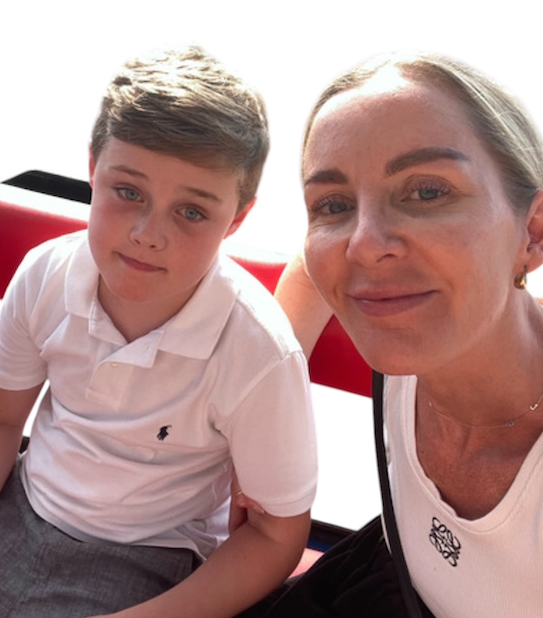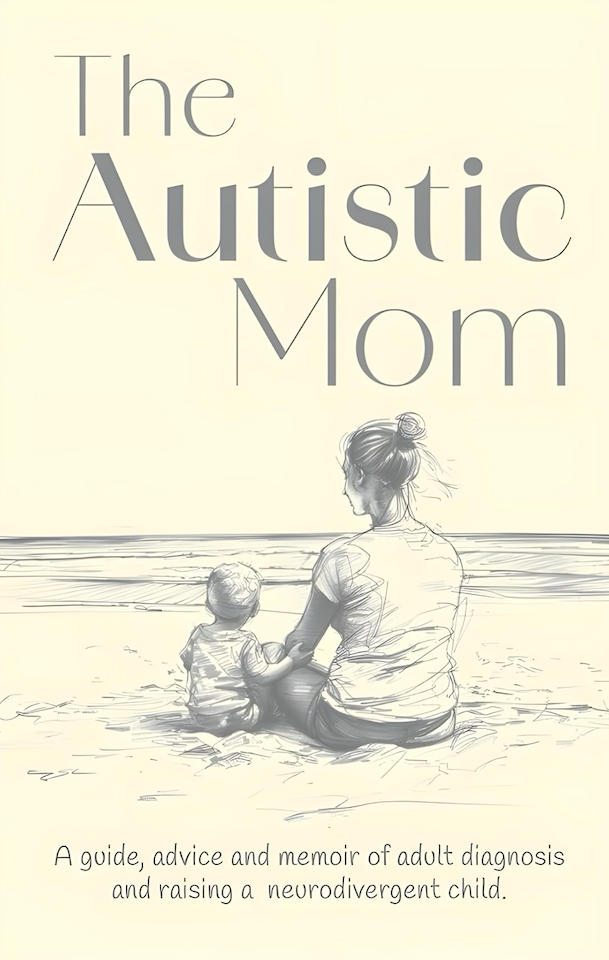Primary Times - the definitive what’s on and where to go family guide of activities and events for children of primary school age. Things to do with your kids during the school holidays including arts and craft activities, music and theatre for children, parties, competitions, days out, and family attractions along with term time drama schools, dance classes, after school clubs and sports activities. Things to do at a place near you!
The ADHD Advantage
 Jessica Whalley’s powerful new book, The Autistic Mom, sheds light on her deeply personal journey as an autistic and ADHD mother raising a nonverbal autistic son. This candid book is a must-read for parents of neurodivergent children, adults navigating their own neurodivergence, and anyone interested in understanding autism and ADHD more deeply. We caught up with Jessica to discuss her journey, and how she is leveraging neurodivergent traits as a parent…
Jessica Whalley’s powerful new book, The Autistic Mom, sheds light on her deeply personal journey as an autistic and ADHD mother raising a nonverbal autistic son. This candid book is a must-read for parents of neurodivergent children, adults navigating their own neurodivergence, and anyone interested in understanding autism and ADHD more deeply. We caught up with Jessica to discuss her journey, and how she is leveraging neurodivergent traits as a parent…
Many people wonder what it’s like to be a neurodivergent parent. I’ve read comments suggesting that neurodivergent parents are incapable of looking after a child. This is hurtful, and couldn’t be further from the truth.
Speaking from personal experience, I am completely devoted to my son, Jude. My neurodivergent traits—particularly my ability to hyperfocus—have enabled me to deeply immerse myself in learning everything important for his development and wellbeing. This has, without a doubt, benefited him immensely.
He is one of the happiest children I know. Although he is non-verbal, he lives a full life with minimal stress or frustration. He receives all the support he needs, largely because I’ve been able to use my strengths to advocate for him effectively.
Having ADHD makes me highly observant and intuitive. I often pick up on small details that others might miss. This helped me identify and initiate support for my son from as early as 18 months old, including speech and language therapy and physiotherapy at home to stimulate his development. These interventions have played a crucial role in his progress and overall wellbeing.
I understand him in a way that many others can’t. Some of the things he needs—like routine and repetition—come naturally to me because they’re a part of who I am too.
That said, parenting a child with autism spectrum condition (ASC) and/or ADHD in the way they need to be parented is incredibly demanding. It’s stressful, all-consuming, and comes with immense pressure. Of course, all parents have a responsibility to raise their children to be happy, healthy, and well-rounded individuals, ready for independence.
But when your child has additional needs, it falls entirely on you to ensure they receive the extra support required to thrive. In today’s world, with grandparents working later in life and communities feeling more disconnected, modern parenting comes with less support and more pressure.
If you’re also neurodivergent—whether you’ve been diagnosed or not—the journey can be even more challenging. But it is possible to learn how to support yourself along the way, as I’ve learned to do.
There are many treatments that can help neurodivergent individuals at any stage of life. Alongside lifestyle and dietary changes, hormone support, and medication, these interventions can make daily life more manageable.
For ADHD, there are stimulant and non-stimulant medications, as well as certain antidepressants and anti-anxiety treatments that can help. Unfortunately, some healthcare professionals lack the in-depth knowledge required to tailor treatments effectively, especially since ADHD presents in many different ways. Experts in the field suggest there are at least seven distinct types of ADHD, each responding to different treatments, supplements, and therapies.
Neurodivergence is often—though not always—hereditary. It's common for a child’s diagnosis to lead family members to reflect and realise that they, or someone else in the family, may have had similar traits as a child.
In my view, when a child is diagnosed, parents should also be assessed. There’s a high likelihood that one of them shares the same condition. If they’ve reached adulthood undiagnosed, it's likely they’re considered "high functioning" (a label I personally dislike, but it’s widely understood). Many may not feel the need to pursue a diagnosis—and that’s entirely their choice.
Previous generations didn’t have access to the information we have now. We do—and we have no excuse not to use it to improve things.
In particular, I’ve found—through personal experience, research, and conversations with other mothers—that many women eventually reach a point where maintaining that so-called ‘high function’ becomes unsustainable.
I believe that many women, like I was, have been misdiagnosed with anxiety or depression when in fact they are autistic or have ADHD. This misdiagnosis means that traditional treatments—such as therapy or standard medications—don’t actually address the root issue, and therefore, are often ineffective.
I found the main advantage for me receiving my diagnoses is that I now know the conditions I have, and understand them more deeply - which has helped me manage them and finally understand myself. They are a part of me and always will be and I have accepted that.
I also realised what so many mothers come to understand: I’d spent so long looking after everyone else, I had forgotten to look after myself. Sometimes we need to pause and ask: Who’s looking after me? We cannot do everything, all the time.
 If I hadn’t had my son, I might never have gained this knowledge or made these connections. I shudder to think where I’d be. I am so incredibly grateful for this journey. I’ve never been happier or more at peace—but it’s been a long, hard road.
If I hadn’t had my son, I might never have gained this knowledge or made these connections. I shudder to think where I’d be. I am so incredibly grateful for this journey. I’ve never been happier or more at peace—but it’s been a long, hard road.
One of the main reasons I wrote my book The Autistic Mom was to help other parents—whether undiagnosed, newly diagnosed, or simply struggling—access the knowledge they need to move forward in a healthier, more empowered way. It took me seven years to gather the information I needed to overcome my own struggles, because sadly, our health services are still not equipped to provide it.
I also wanted to share practical advice on what has helped me support my son and make life easier for all of us.
The Autistic Mom is available to purchase in paperback priced £13.99 on Amazon HERE




